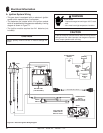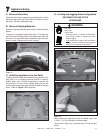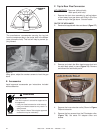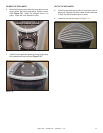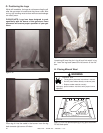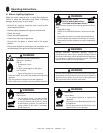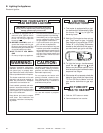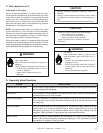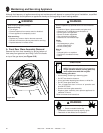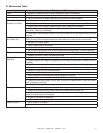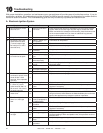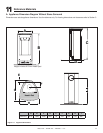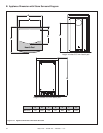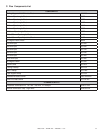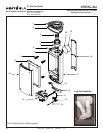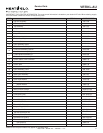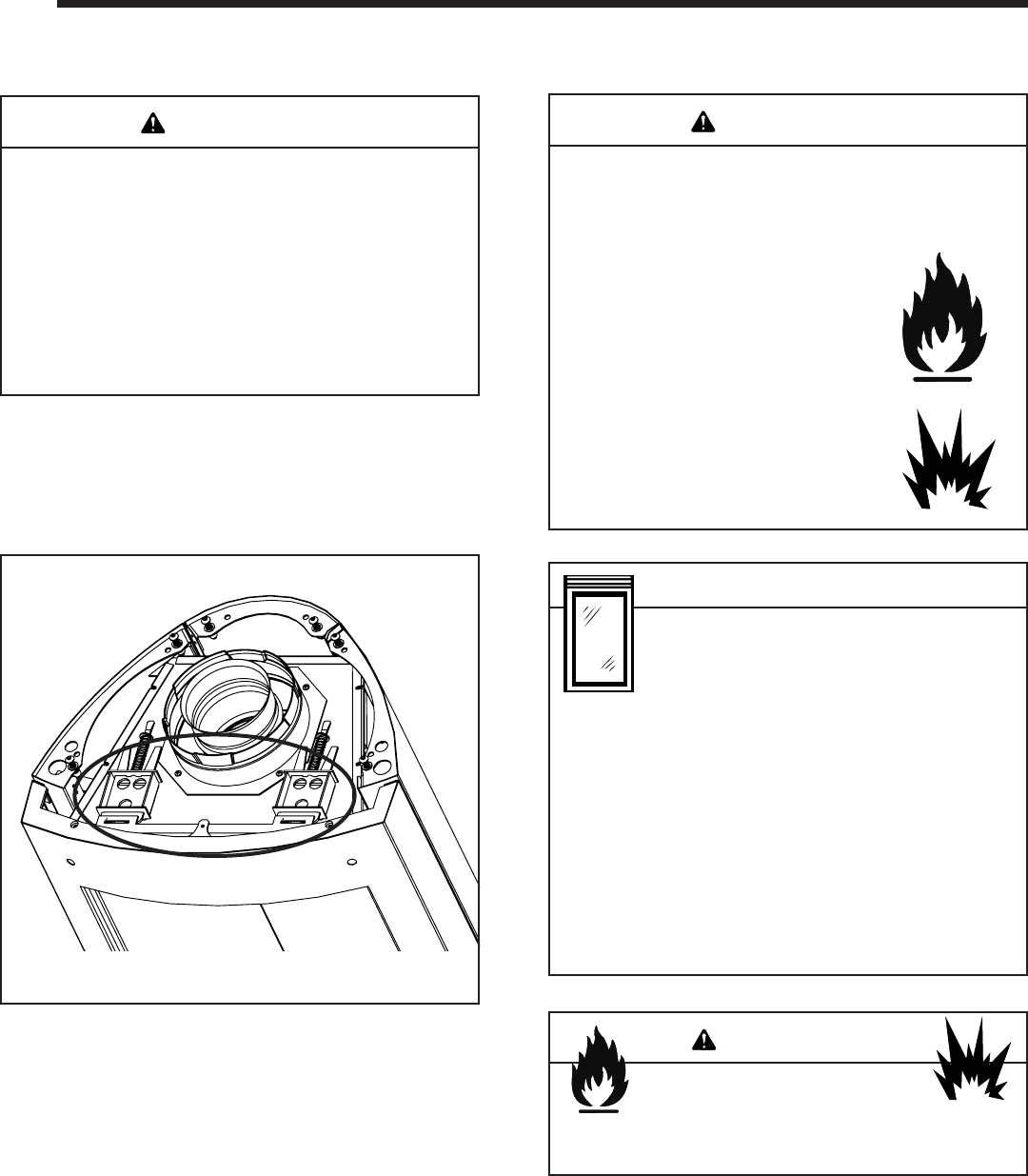
30 Heat & Glo • VRTIKL-AU • 2123-900 • 7/07
9
9
Maintaining and Servicing Appliance
Although the frequency of appliance servicing and maintenance will depend on use and the type of installation, a qualifi ed
service technician should perform an appliance checkup at the beginning of each heating season.
Annual inspection by qualifi ed technician recommended.
Check:
• Condition of glass, glass assembly and glass seal.
• Obstructions of combustion and ventilation air.
• Burner ignition and operation.
• Burner air shutter adjustment
• Gas connections and fi ttings.
• Obstructions of termination cap.
Clean:
• Glass
• Air passageways, grilles,
control compartment
• Burner, burner ports
Risk of:
• Fire
• Delayed ignition or explosion
• Exposure to combustion fumes
• Odors
Handle glass assembly with care.
NOTE: Clean glass after initial 3-4 hours operation.
Longer operation without cleaning glass may
cause a permanent white fi lm on glass.
CAUTION
When cleaning glass door:
• Avoid striking, scratching or slamming glass.
• Do NOT use abrasive cleaners.
• Use a hard water deposit glass cleaner on white fi lm.
• Do NOT clean glass when hot.
• Turn off appliance after 3-4 hours of operation and
ALLOW TO COOL.
• Remove and clean glass assembly.
• Replace glass assembly and operate appliance for
additional 12 hours.
Refer to maintenance instructions.
Risk of injury or property damage.
Before servicing:
• Turn off gas.
• Remove batteries from remote control to disable it.
• Ensure appliance is completely cooled.
After servicing:
• Replace any screen or barrier that was removed.
• Reinstall and reseal any fl ueing removed for servicing.
• Replace batteries in remote control.
Inspect external vent cap regularly.
• Ensure no debris blocks cap.
• Combustible materials blocking cap may ignite.
• Restricted air fl ow affects burner operation.
WARNING
WARNING
WARNING
A. Front Door Glass Assembly Removal
Remove the front door assembly by pulling bottom of
front away from gas stove and lifting it off of the hooks
on top of the gas stove (see Figure 8.18).
Figure 8.18



